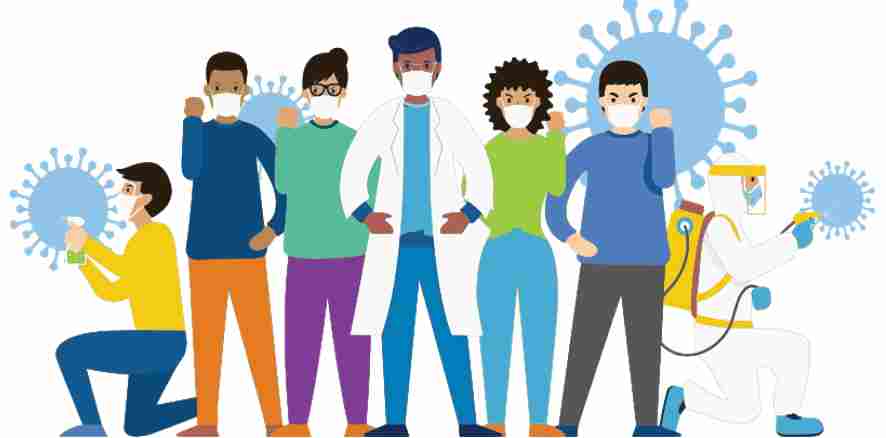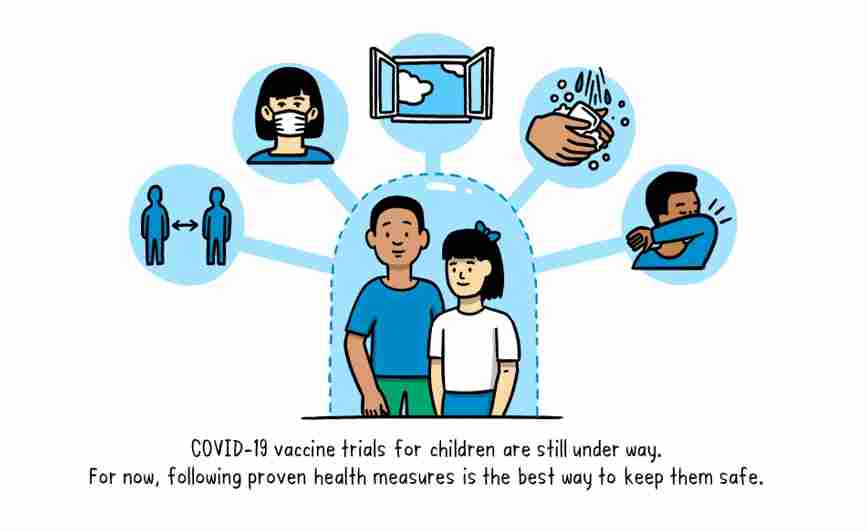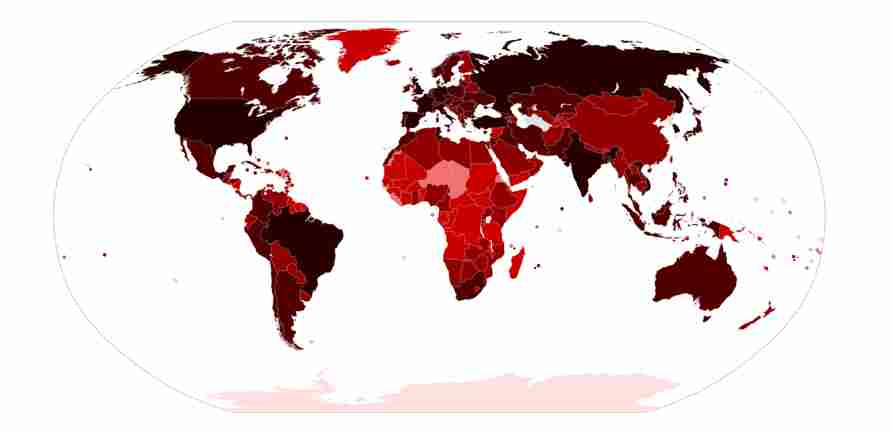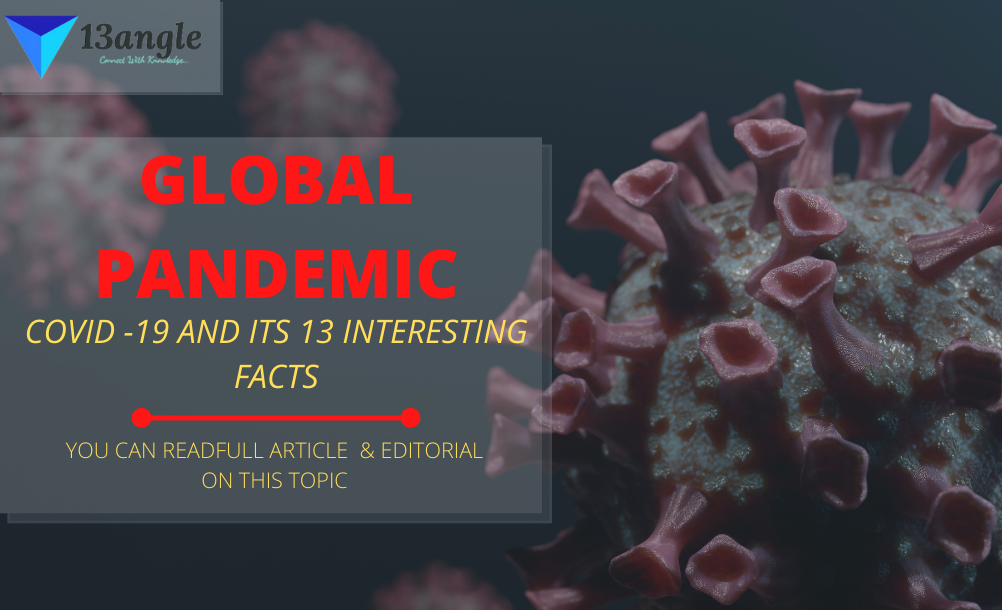- Umang Sagar
- Environment, National Issue, Recent article, World Issue
Omicron Variant

Omicron variant of COVID-19. Coronavirus disease (COVID-19) is a disease caused by SARS-CoV-2 virus.
Introduction To Covid-19

Covid-19 is an infectious disease that causes illnesses from the common cold to more severe diseases. It arises from a large family of viruses known as Coronavirus (CoV).
On 11 March 2020, there was a rapid increase in the number of cases of COVID-19, beginning in Wuhan city, China. This led the WHO Director-General to announce that this outbreak could be termed a pandemic. Around this time, 118000 cases had been reported from over 114 countries. A total of 4291 deaths had been recorded.
Presently, the cases of COVID-19 have drastically declined as a proper precaution, vaccines, and appropriate measures were adopted by the government at times of need.
Most people who have been infected by this virus have reported experiencing mild to moderate respiratory illness and recovered without any medical help. However, some of those infected may experience severe illness and require special medical treatment immediately. The elderly and those vulnerable are more prone to catching the virus if appropriate measures are not taken. Anyone can catch the COVID-19 virus and become very ill, and in some cases may die.
Introduction To Omicron

Centers for Disease Control and Prevention (CDC), has recently been working alongside global public health and industry partners to research on Omicron. They have been evaluating how it spreads, the severity of the illness and its causes, and vaccines and medication working against it.
Spread: The Omicron variant spreads faster and more easily than Covid-19 and Delta variants. CDC has concluded that anyone who is currently infected with Omicron, regardless of whether or not they have symptoms, or if they are vaccinated, have the ability to spread the virus.
Symptoms: One who is infected with the Omicron variant can have symptoms similar to previous variants. The severity of symptoms can be affected by whether or not you have taken the vaccination, presence of health conditions, age, etc.
Severe Illness: Omicron infection causes less severe diseases than its variants. Research suggests that Omicron may cause more mild diseases although some people may experience severe illness and require hospitalization.
Vaccines: COVID-19 vaccines have been the best measure in prevention of being infected by it. It also reduces the likelihood of one being infected by the other variants of the infection.
How To Fight Omicron
1. Vaccines: Every individual five years and older must protect themselves from covid by getting vaccinated. Everyone 12 years and older must stay on track with their COVID-19 vaccines, they must also get a booster shot when suitable. This is by far the best way to prevent yourself and those around you from catching the Omicron variant.
2. Masks: Properly fitting masks provide protection against all variants.
People are not required to wear masks when outdoors. It is only recommended to wear a mask if you are sick and need to be around others.
If where you live has low COVID-19 cases, you may wear a mask based on your own preference. Whereas, if you live in a place where there are a moderate number of cases of the disease, then you must wear masks if you are at risk of severe illness. In places having a high number of cases, you must always wear a mask whether indoors or outdoors.
3. Tests: Tests can diagnose whether or not you have COVID-19.
There are two types of tests used to test for the infection: nucleic acid amplification tests (NAATs), and antigen tests. Self-tests can also be done, they provide rapid results.
Learning About Omicron

1. Attacking Your Body:
Any virus infects your body by entering the healthy cells. The virus makes several copies of itself, reproduces, or splits once inside your body. It continues to multiply throughout your body. The coronavirus fits on the receptor sites of healthy cells, mostly in your lungs, causing respiratory illnesses. The coronavirus eventually takes control of the cells and kills some healthy cells. Research suggests that Omicron does not attack lung tissue as efficiently as the other variants.
The illness begins when droplets from an infected person’s cough, sneeze, or breath somehow enters your eyes, mouth, or nose. This provides a pathway for the virus to the mucus membranes present inside the throat. Within 2 to 14 days, the newly infected body will start responding with symptoms.
2. Symptoms Of Omicron:
- Fever
- Cough
- Fatigues
- Body and joint aches
- Congestion and runny nose
- Loss of taste or smell
- Nausea or vomiting
- Sore throats
- Diarrhea
- The virus slowly makes its way down the respiratory tract. This airway includes the mouth, nose, throat, and lungs. As the lower area of the lungs has more receptors, Omicron and variants are more likely to go deeper than the rest of the viruses. Lungs may swell up causing congestion and difficulty in breathing. This may result in pneumonia, and infection in air sacs of the lungs (called alveoli).
Why Do Some People Experience More Complications From Omicron Than Others?
- The answer to this question is not entirely known. Through statistics and surveys, it can be concluded that those with heart problems and other underlying conditions experience more complications than others. When one contracts the virus, the body’s immune system activates. In some cases, intense inflammation can occur in the body, which leads to collateral damage to other organs such as the heart and kidneys. The heart plays an important role in the immunity system of the body, and can become compromised. When the immune system is over-activated, complications may occur.
Characteristics
Contagiousness: It was unknown in 2021 how this variant may spread through populations with high immunity levels, and whether or not COVID-19 causes more severe symptoms or Omicron. In December 2021 Anne von Gottberg declared that immunity against previous variants will not work against Omicron. On 15 December 2021, Jenny Harries said that this variant is probably the most significant threat since the start of the pandemic, causing a more drastic increase in the number of cases.
Diagnoses
PCR testing: The FDA has declared various guidelines on how PCR tests will be affected by Omicron. Tests identifying various gene targets will continue to declare the individual positive for COVID-19.
Rapid antigen testing: In January 2022 it was found that one of 23 approved RAT detected Omicron.
Onset Of Covid-19 And Its History

Not only has COVID-19 disrupted the lives of many, but also it has immaculately affected the economy all over the world. The income has severely declined; there was a drastic rise in unemployment, etc.
On March 11, 2020, the World Health Organization (WHO) announced COVID-19 as a global pandemic, with 3 million cases and about 2 lakh deaths in 213 countries. It attacked the economy of the world very unexpectedly. The pandemic led to the loss of productivity, unemployment, loss of lives, etc. COVID-19 has completely brought down the life of doctors and impacted the health care systems. Overall, the average expenditure per family declined drastically due to the above-mentioned reasons, and service industries such as tourism, hospitality, and transportation have suffered significantly. The International Air Transport Association projects a loss in airline revenue solely from passenger carriage of up to $314 billion.
Statistical Data
Recently, 115 deaths have been reported from around the world due to the Omicron variant, out of which, one is from India. As Omicron has a better growth rate than delta, there will be less requirement of hospitalization for Omicron than delta. As coronavirus cases consistently increase, with currently 9, 55,319 cases in India, the states which might be most affected include Maharashtra, West Bengal, Delhi, Gujarat, Tamil Nadu, Karnataka, and Uttar Pradesh. Maharashtra has high positive rates of 22.4%, Bengal with 32.2%, Delhi with 23%, and Uttar Pradesh with 5%.
After Prime Minister Narendra Modi held a review meeting on the COVID-19 situation on January 9, the health ministry revised the discharge policy with severity categorized into mild and moderate cases. “Mild case discharge after at least seven days from testing positive and non-emergency for three successive days, no need for testing prior to discharge,” said the Joint Secretary. Further stating, “If there is a resolution of symptoms, the patient maintains O2 saturation more than 93 percent for three successive days (without O2). Such patient will be discharged.”
India has recently noted 1, 94,720 new emerging cases of COVID-19 and 442 deaths. With these statistics, the total COVID-19 cases in India have totaled to 3, 60, 70,510 which includes 9, 55,319 currently active cases. The Positive rate of the country is 11%.
Top 13 Interesting Facts About Omicron Variant
COVID 19 does not create or cause variants of the virus. It helps prevent new variants from spreading.
Taking a COVID-19 vaccine is a safer and more dependable way to build immunity to COVID-19 and its variants.
Anyone can report events to VAERS, even if it is not clear whether a vaccine caused the problem. Because of this, VAERS data alone cannot determine if the reported adverse event was caused by a COVID-19 vaccination.
Omicron appears to be significantly more contagious than delta. As Omicron is 2 – 3 times more easily transmitted between individuals than the delta variant.
Masks, avoiding crowds, physical distancing, and testing still work to prevent omicron transmission.
Omicron is now the dominant strain of the coronavirus in the U.S. that causes COVID-19.
Vaccinations and when eligible, boosters, are the best defense for all ages to developing severe symptoms and requiring hospitalization.
Breakthrough COVID-19 infections in people who are fully vaccinated and/or had a prior infection can occur.
Omicron displays how variants can mutate rapidly amid low vaccination rates, which underscores the importance of getting vaccinated and getting a booster.
Given what we currently know about COVID-19 and the Omicron variant, CDC shortened the recommended isolation time for people with COVID-19 who are asymptomatic (showing no symptoms) from 10 days to 5 days, followed by 5 days of wearing a mask when around others.
ECDC cautioned that the Omicron variant could be the cause of nearly half of all infections in Europe within the next few months.
India’s health ministry has said in a statement that “given the pace of vaccination” and exposure to the Delta variant, “the severity of the disease is expected to be low” in the country.
Researchers are trying to figure out Omicron’s ability to evade immune responses and the effectiveness of available vaccines.

Read the full article on Coronavirus. Please click the button below;




